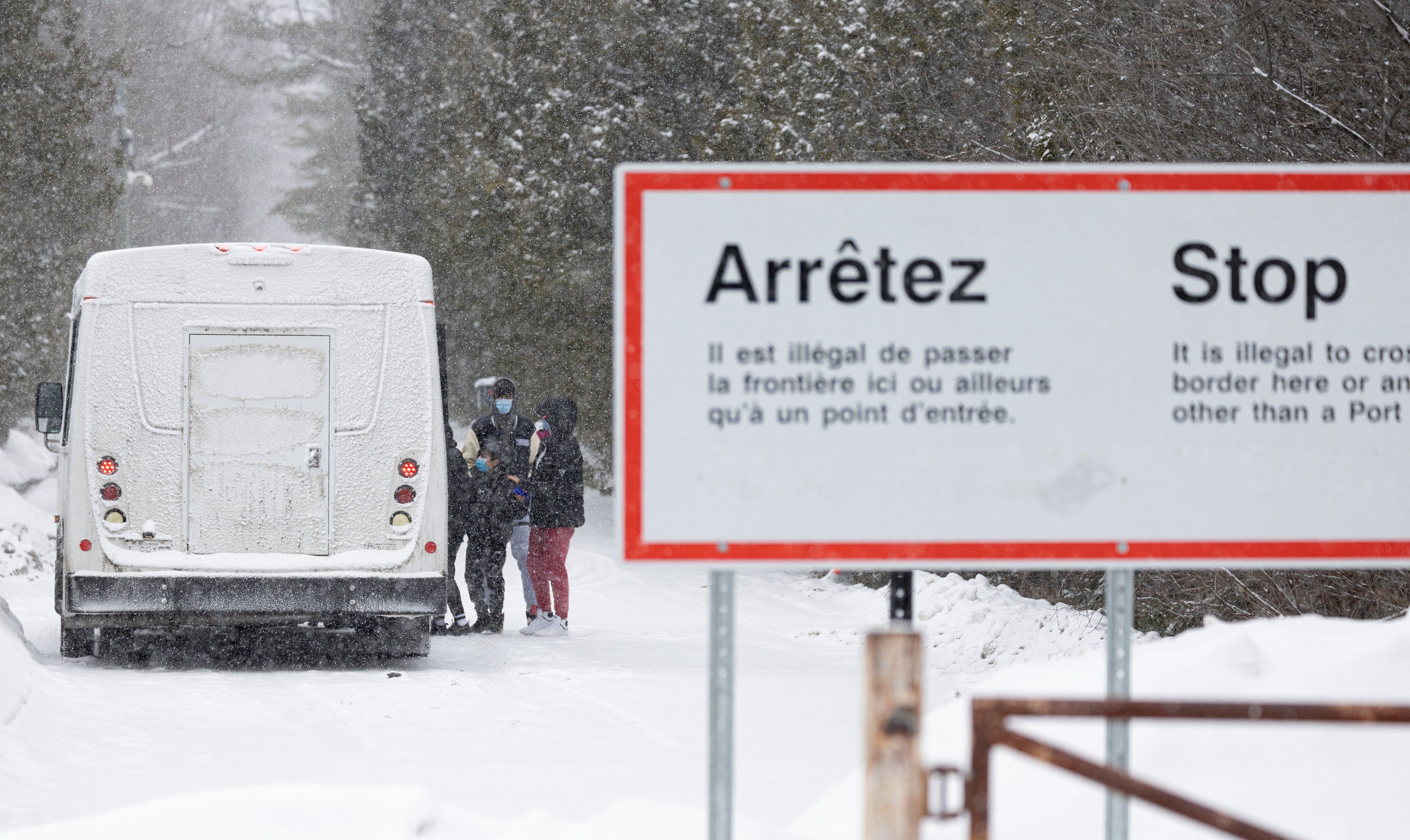Crackdown at Roxham Road
While the great and the good were celebrating the progressive partnership between Joe Biden and Justin Trudeau at a glamorous Ottawa state dinner with yellowfin tuna and Alberta beef, Mounties were shutting down the irregular border crossing at Roxham Road, south of Montreal.
This delighted Quebec Premier François Legault but came as a shock to the desperate migrants who were en route to the crossing when the news broke. The sad and difficult stories of desperate migrants — fleeing war, crime, poverty, and repression — were not shared at the dinner where Canadians feted Biden. The quid pro quo for Biden’s help was a Canadian agreement to accept 15,000 migrants from the Caribbean and Central America.
Yet, closing the irregular border crossing at Roxham Road will likely have a negligible impact. Even if the move initially slows the influx, smugglers will find other routes — which could be more perilous. In fact, eight migrants died late last week in an attempt to cross the St. Lawrence River from Canada to the US.
One striking thing about the announcement was that nobody got wind of it until the day before. The governments had reached a deal in the spring of 2022 but succeeded in keeping it quiet until the last minute, apparently out of a desire to make sure migrants didn’t make a rush for the border.
Terrible choices for Haiti
In the leadup to Biden’s visit, the US repeatedlysignaled that it would like Canada to play a leadership role in a military intervention to bring order to chaotic, hellish Haiti, both for humanitarian reasons and to slow the flow of migrants to both Canada and the US. Nobody thought Canada would send in peacekeepers.
Indeed, Trudeau did not agree to send troops, and Biden said he wasn’t disappointed, but both leaders promised to keep working on the problem.
Perhaps Brazil could return to stop the gangs from terrorizing the population, former president of the World Peace Foundation Robert Rotberg argues, after which Canadians, and especially Canadians from the Haitian diaspora, could play a central role in reconstructing a government.__________
GZERO North is a free weekly newsletter that gives you an insider’s guide to the very latest political, economic, and cultural news shaping US-Canadian relations. Subscribe today.
